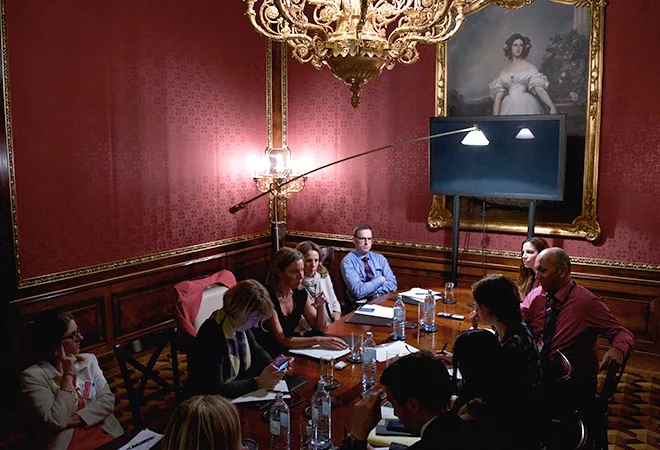Battle lines are hardening after the United States of America pulled out of the nuclear pact with Iran. The most significant fault line is developing between Europe and the US. The Donald Trump administration is in no mood to relent on its decision to pull out of the Iran nuclear deal in order to put pressure on Tehran. The Joint Comprehensive Plan of Action was signed in 2015 by the United Kingdom, France, China, Russia, Germany and the US with Iran to curb Iranian nuclear activities in return of the lifting of sanctions by the United Nations, the US and Europe on Tehran. After repeatedly denouncing the Obama-era pact, Trump finally decided to pull the plug on the deal. The US has sanctioned six people and three companies for their ties with Iran's Revolutionary Guards.
But this was a multiparty deal. The remaining world powers are not in favour of giving up on it. While Russia and China have denounced the US move, it is Europe which is leading the charge against Washington. France, Germany and the UK have made it clear that they remain committed to the agreement and will push to enhance trade links with Iran. They are gearing up to revive a legislation that will allow European companies to continue doing business with Iran in spite of US sanctions and will prohibit European companies from complying with the penalties as well as permit compensation for affected firms.
But Europe has limited financial leverage. European businesses are also worried that their ties with the US could come under strain. Moreover, there is no comparison between the American and Iranian markets. Europe is one of Iran's largest trading partners and its economic footprint has increased in Iran only after the 2015 nuclear accord. Iran, too, has reciprocated by making the euro its official reporting currency instead of the dollar.
Europe has limited financial leverage. European businesses are also worried that their ties with the US could come under strain.
Tricky challenge
European firms have been keen to get a foothold in the Iranian market, and some big-ticket deals have been in the offing. The French energy giant, Total, signed a five billion dollar deal with Iran to develop the world's largest gas field; the Norwegian firm, Saga Energy, signed a three billion dollar deal to build solar power plants; Airbus signed a deal to sell 100 jets to Iran Air. All of these deals are now in danger unless specific waivers can be negotiated.
The only hope now resides with the remaining parties that have pledged their continuing support for the 2015 agreement. There is disquiet in Europe over Trump's unilateral measures and a growing resolve that it will have to stand up to Washington. There is a danger that this can permanently damage the transatlantic alliance.
For India, the challenge is to preserve its own equities in Iran and the wider West Asian region. New Delhi has benefitted from the warming of ties between the US and Iran as it allowed India to nurture its bonds with the major stake holders in the region: Saudi Arabia and other Arab nations, Israel and Iran. This carefully crafted diplomatic matrix will now come under strain as Israel and Saudi Arabia will push for a stronger containment of Iran. India has also pledged to invest more than 500 million dollars to develop the strategically important Iranian port of Chabahar, which is critical to India's outreach to Afghanistan and wider Central Asia. Iran is a major oil supplier to India after Iraq and Saudi Arabia, and India is Iran's third-largest trading partner. Moreover, an expected surge in oil prices will adversely affect economic growth prospects in India. Not surprising, India has reportedly "reaffirmed its support for full and effective implementation" of the JCPOA.
New Delhi has faced this situation before when India's ties with Iran had become a sort of litmus test during the negotiations over the Indo-US civil nuclear pact. India had managed to overcome diplomatic turbulence that time. There is no reason why it cannot do so now.
This commentary originally appeared in The Telegraph.
The views expressed above belong to the author(s). ORF research and analyses now available on Telegram! Click here to access our curated content — blogs, longforms and interviews.




 PREV
PREV


